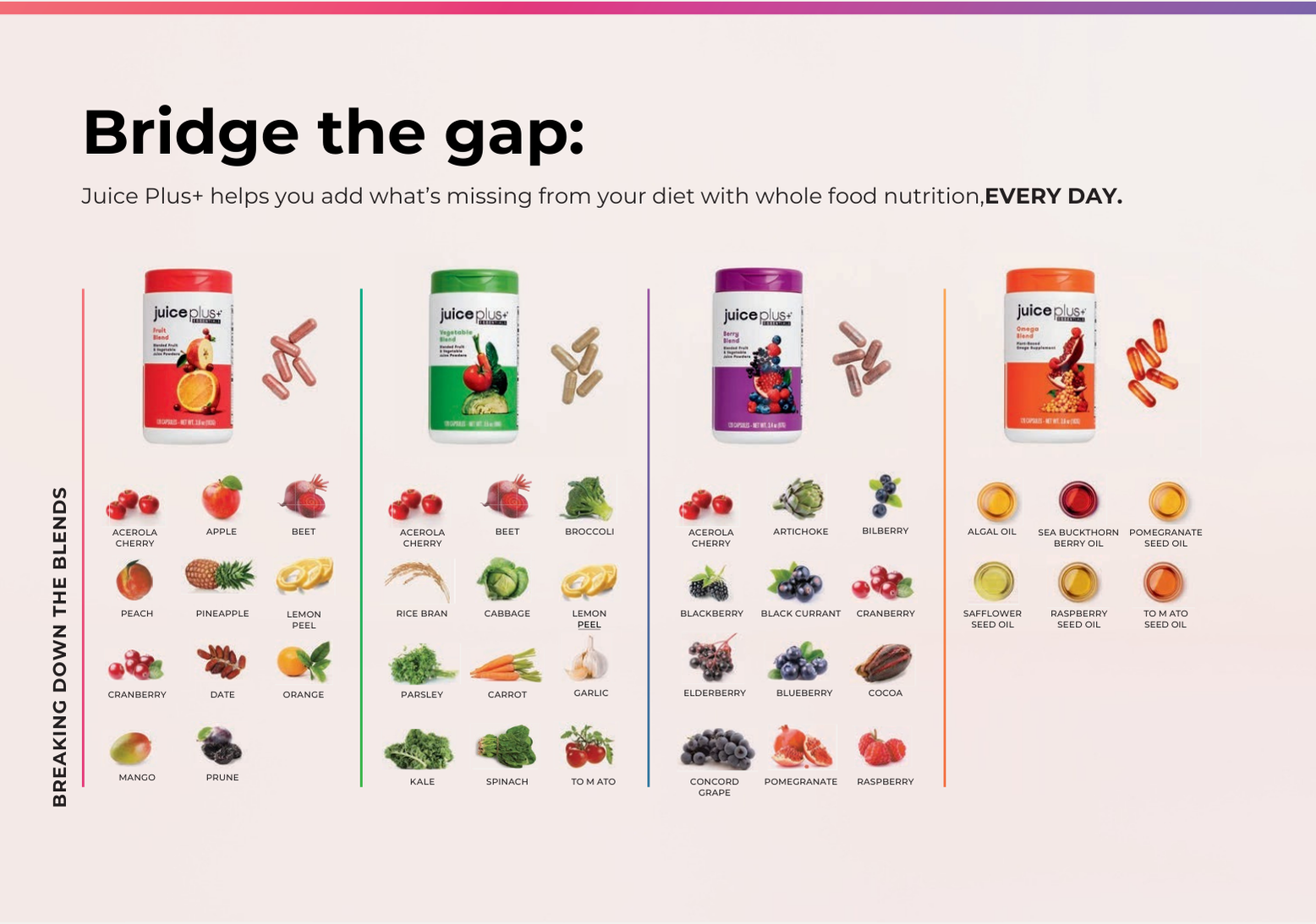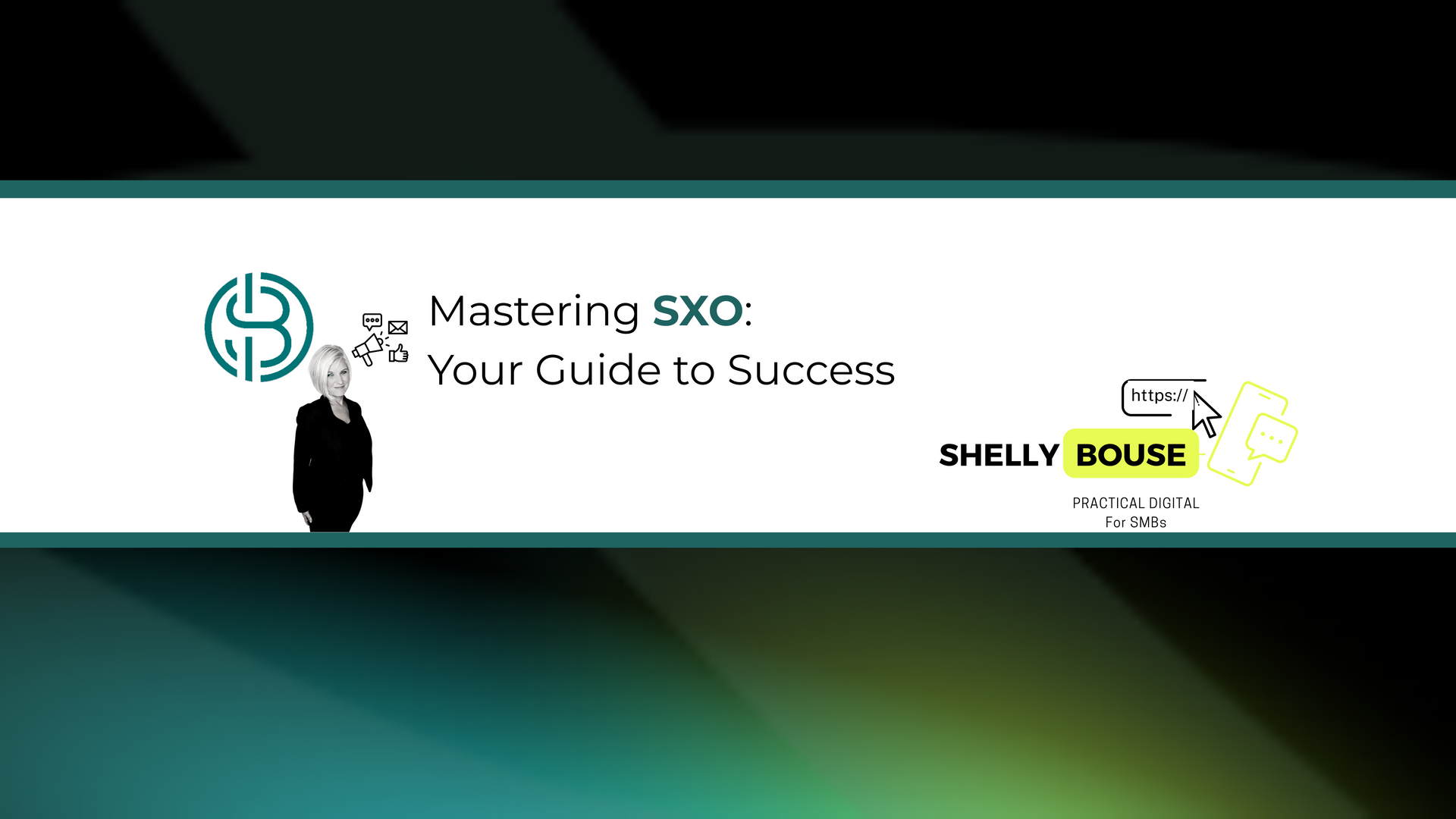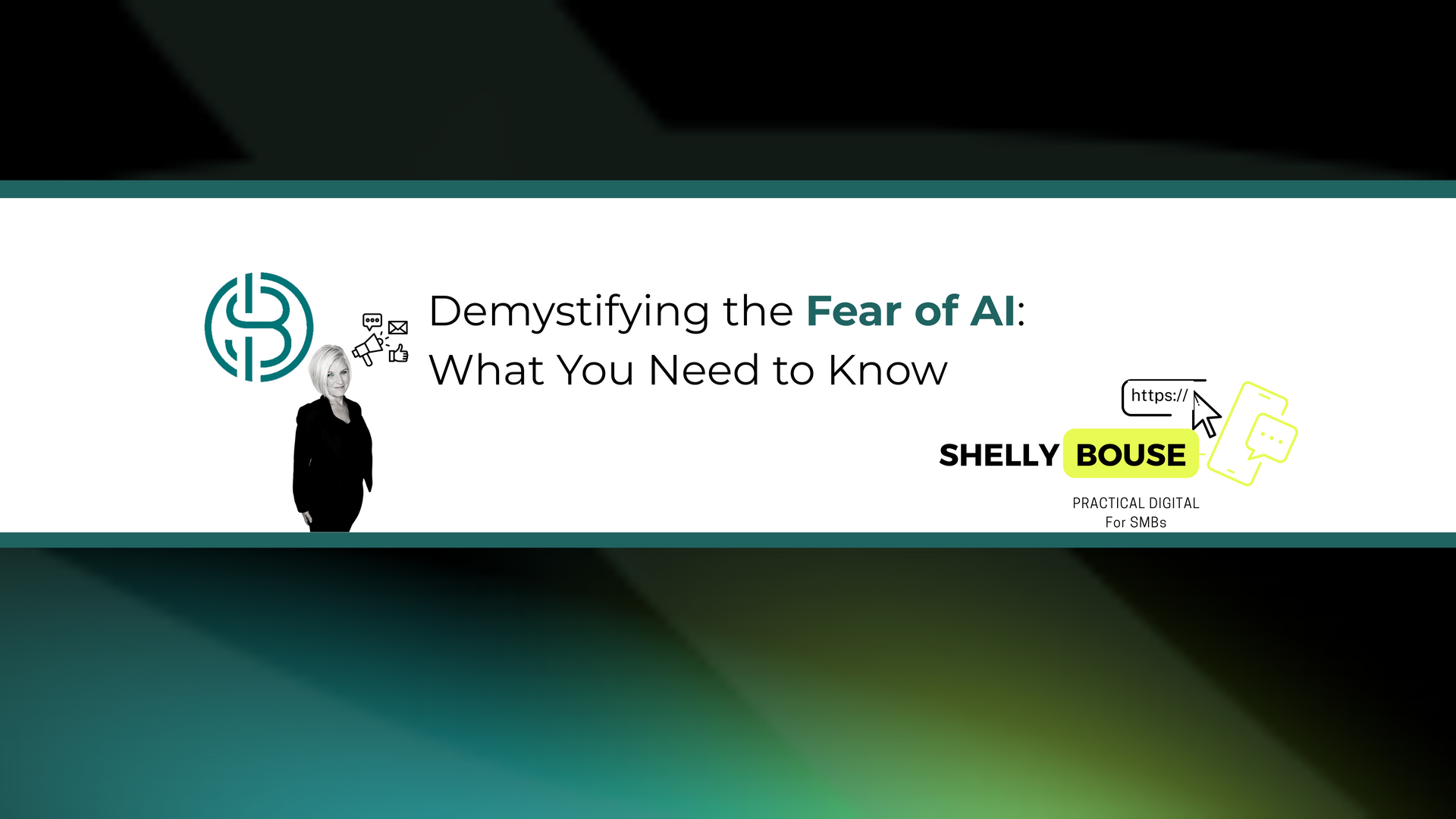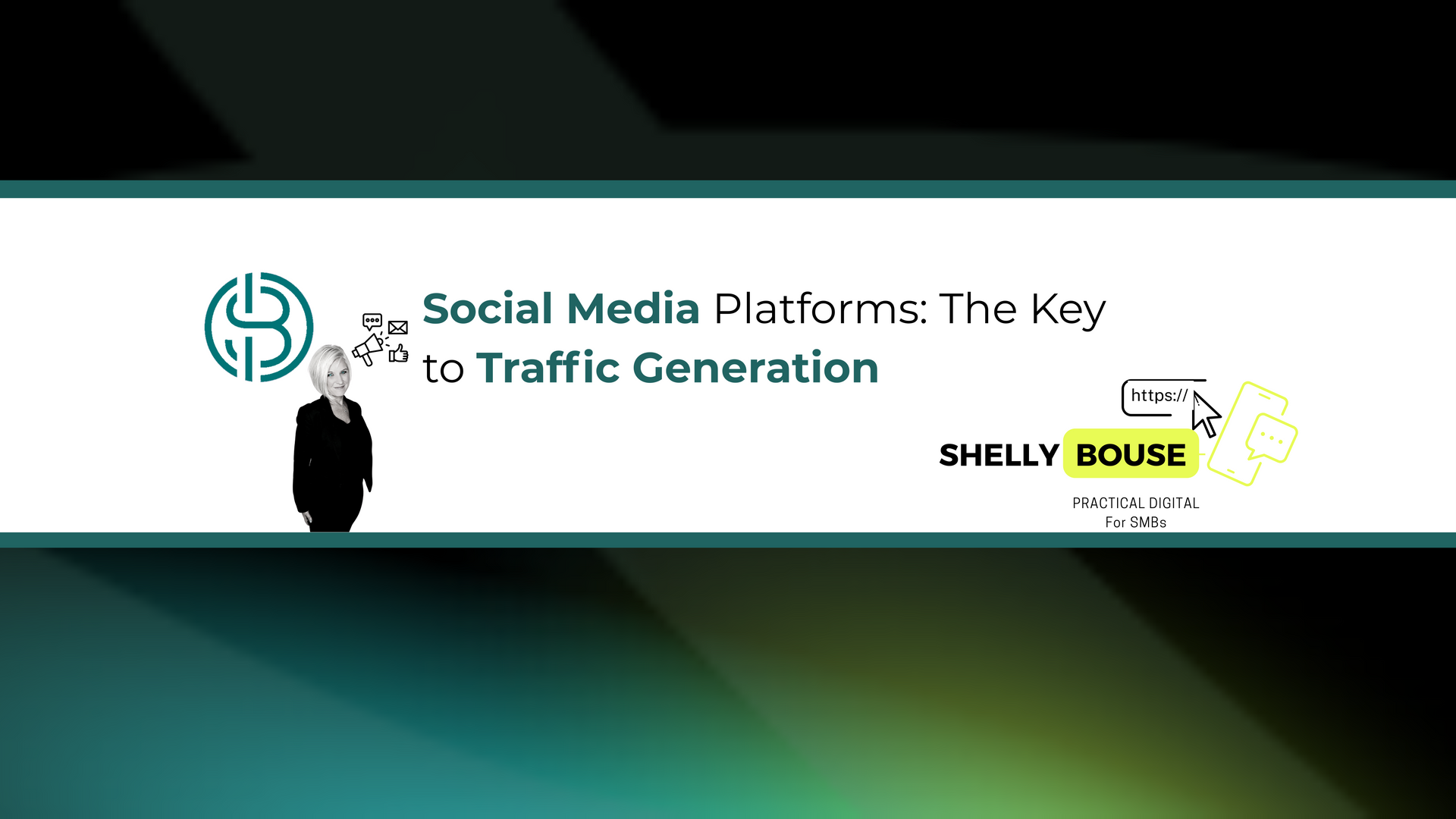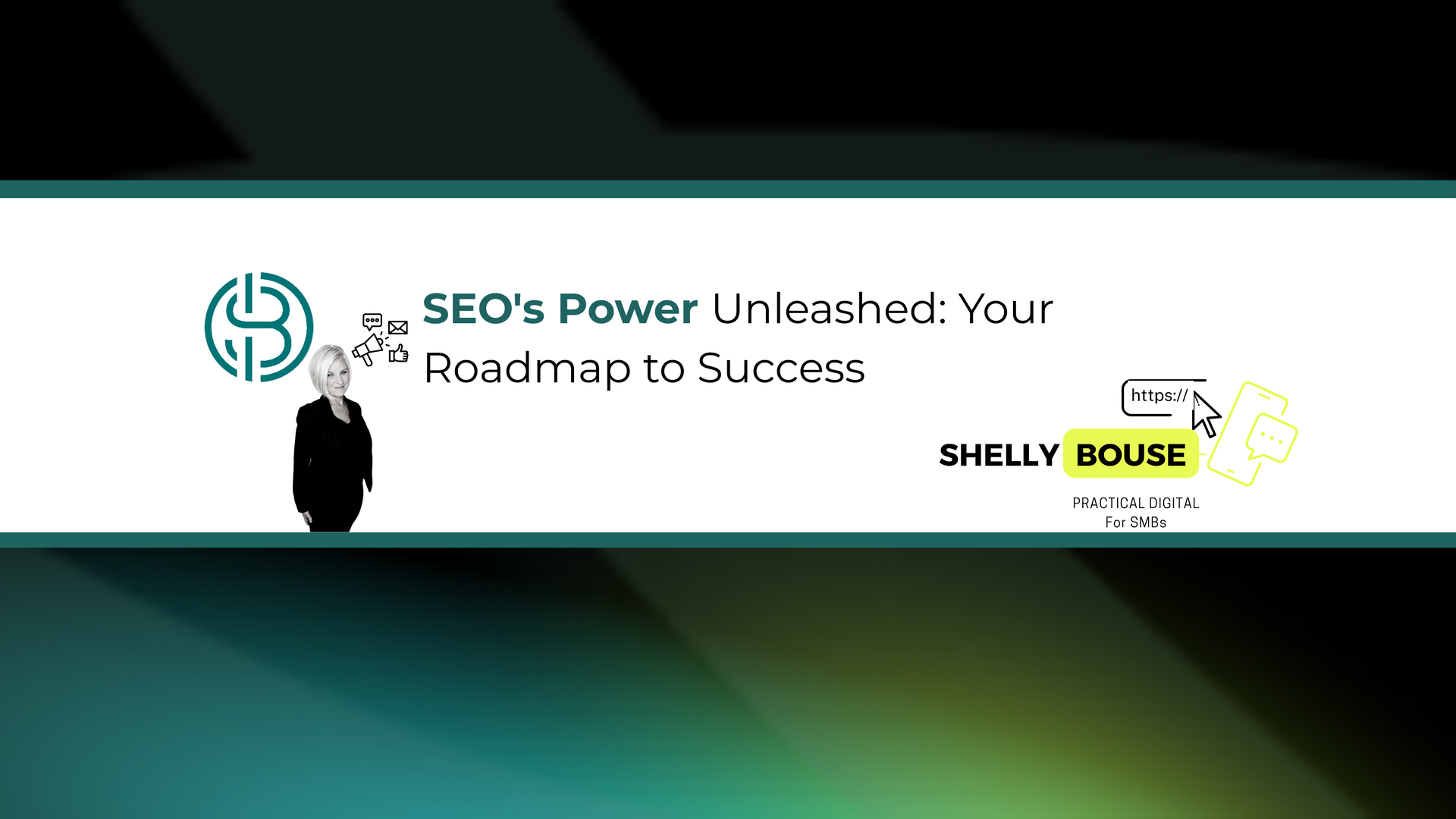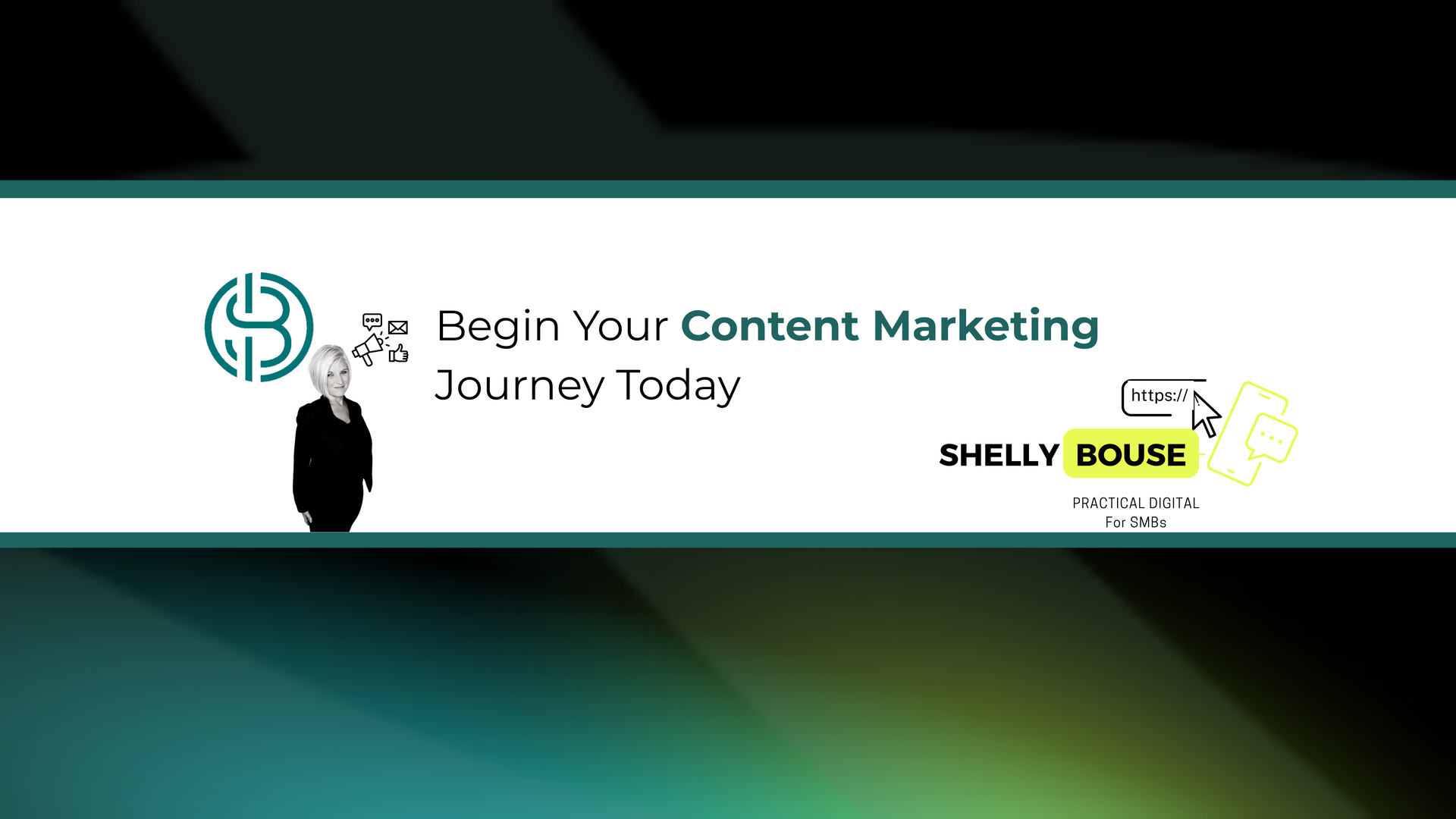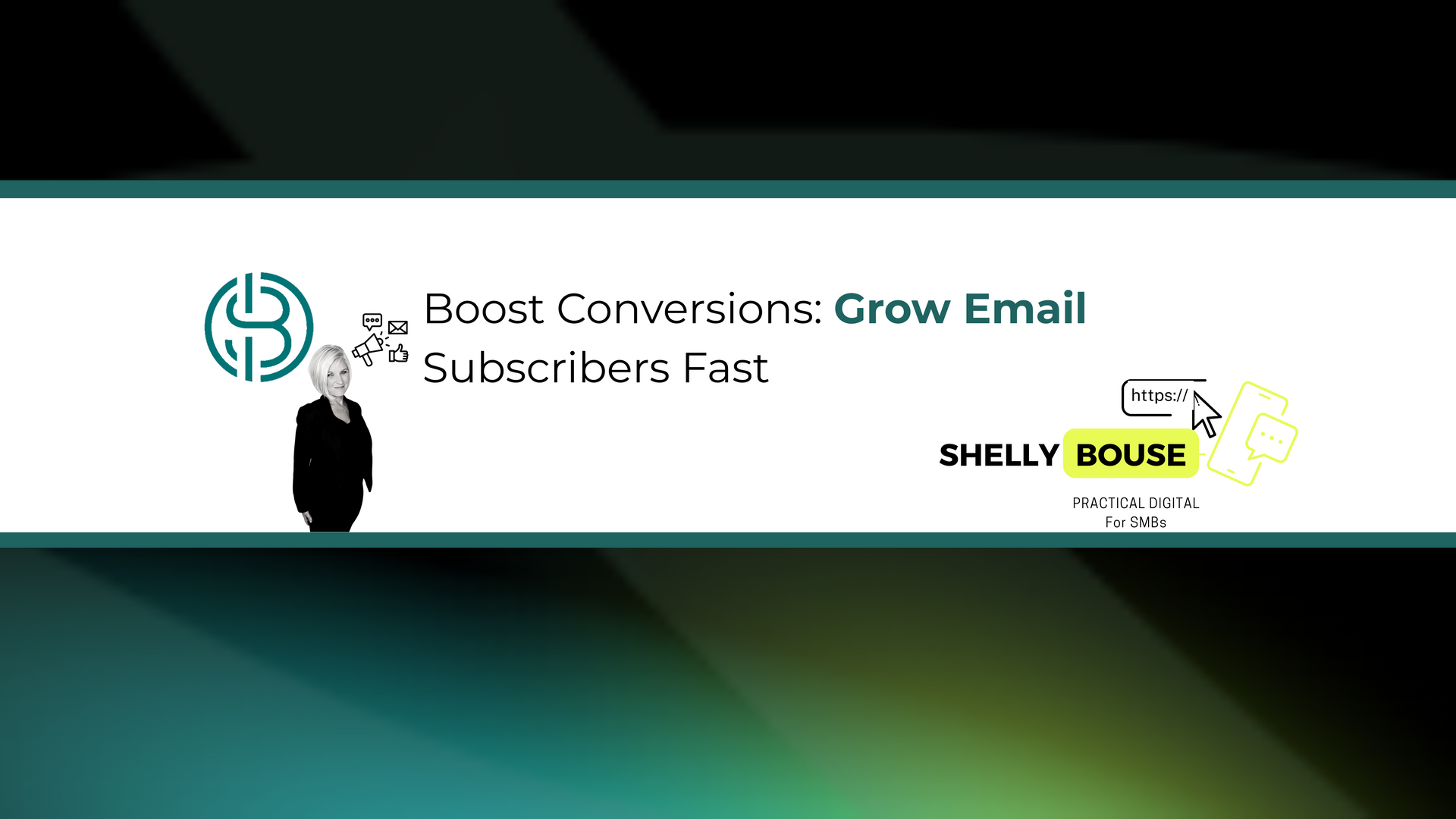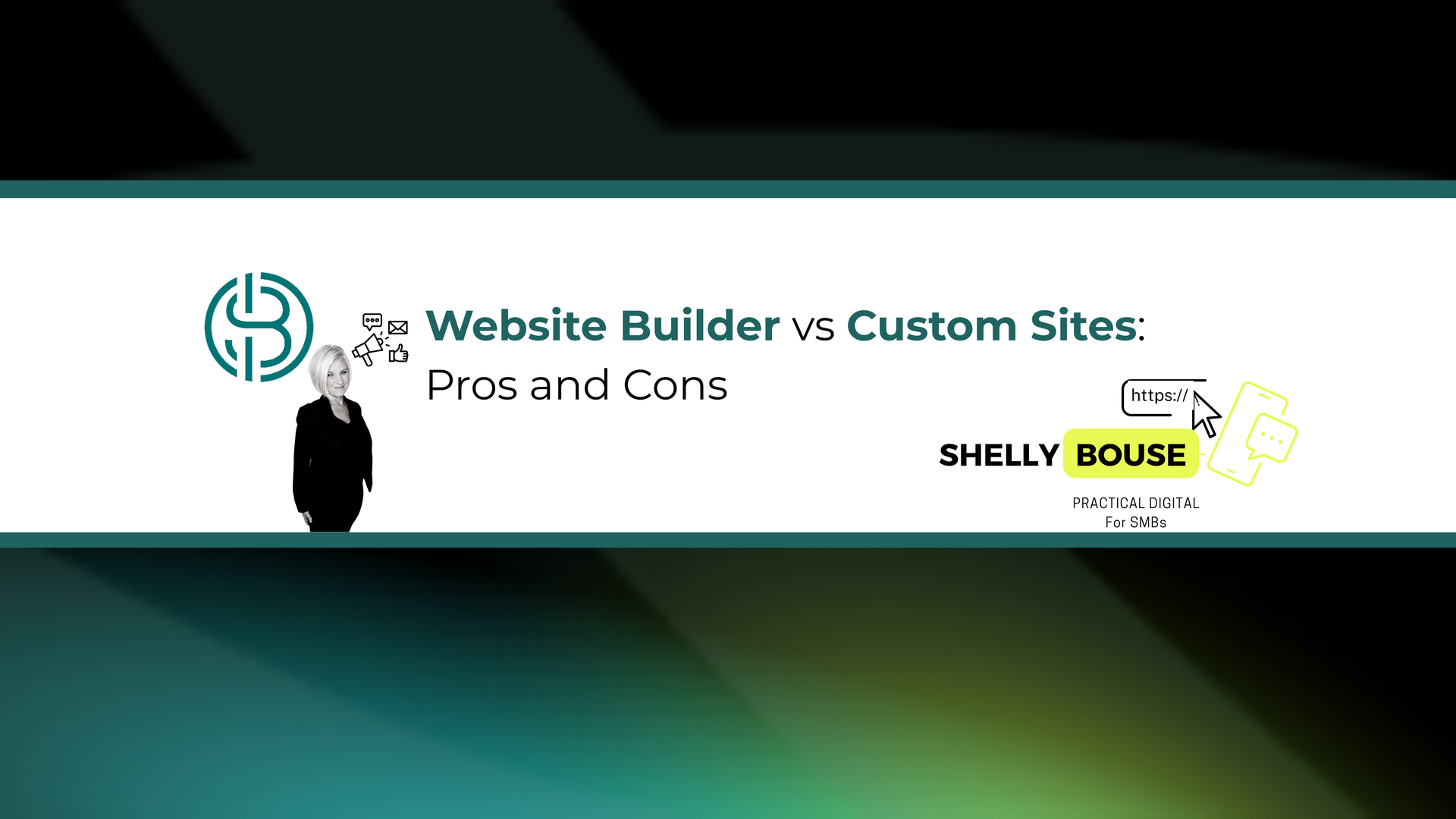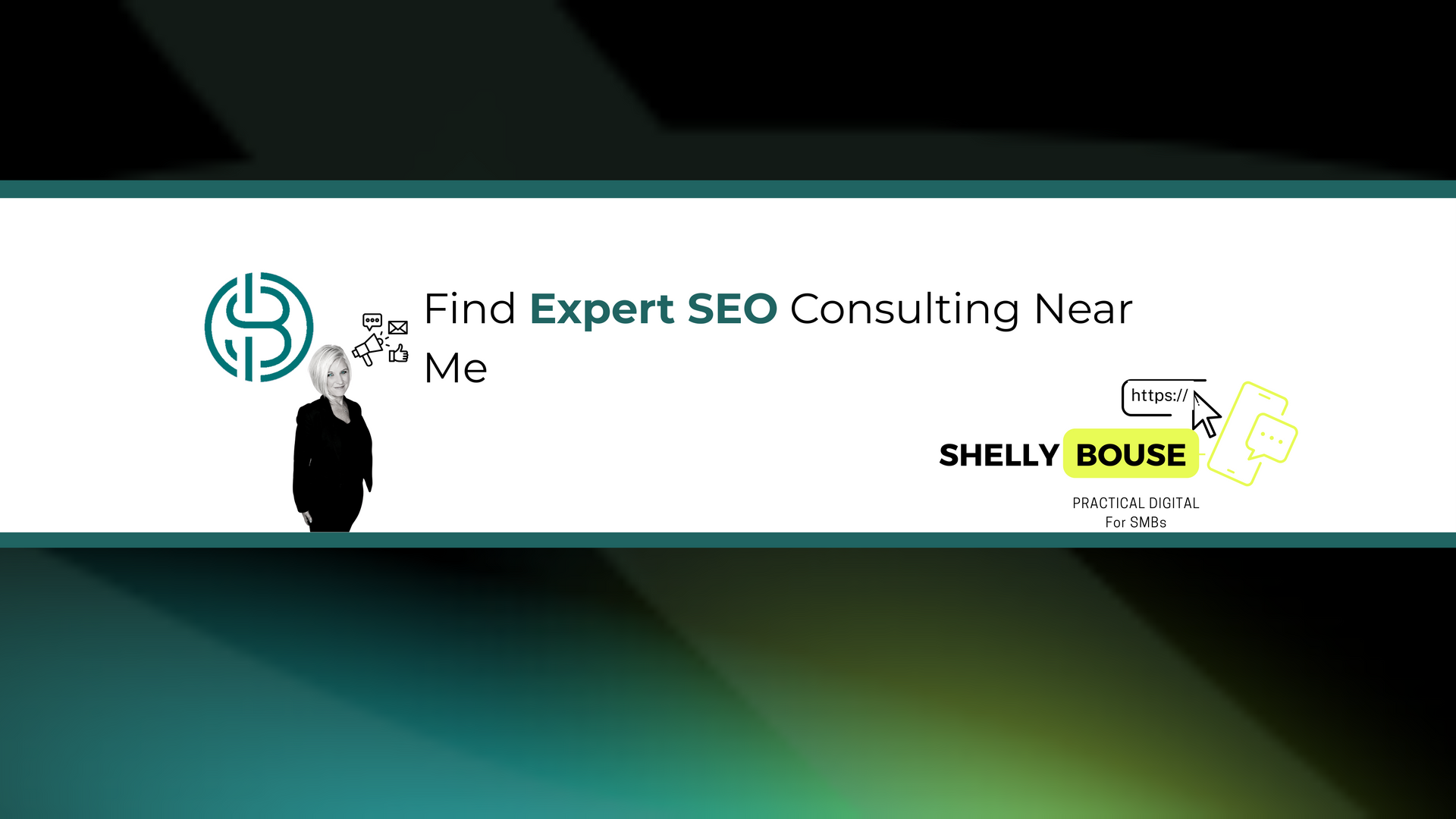Meet Shelly Bouse: The SEO Strategist
Shelly Bouse • April 14, 2025
Shelly Bouse: The Ultimate SEO Specialist

Key Highlights
- Shelly Bouse stands out as an SEO expert who has really left her mark on the field.
- With a solid grasp of SEO's best practices and strategies, she's managed to boost organic traffic and climb up the search engine rankings.
- Throughout her career in SEO, Shelly has hit many milestones and celebrated numerous achievements.
- By blending AI and machine learning with her methods, she’s come up with some cutting-edge SEO techniques.
Shelly's success stories showcase her skills in local SEO, proving she can really help her clients achieve their goals.
Shelly Bouse has made a big name for herself in the SEO world, thanks to her deep understanding and skills. She's really stood out in the crowded field of digital marketing. Her path through SEO is impressive, and she's known as a leading figure because of all she's done. In this blog post, we're going to take a closer look at Shelly Bouse’s life and career, focusing on what makes her such an important person in SEO.
The Journey of Shelly Bouse in SEO
In the huge, constantly shifting world of the internet, Shelly Bouse stands out for her incredible ability to navigate its choppy seas. She's been a trailblazer in making websites work better since the early days of online business back in the 1990s, all through to our current era where artificial intelligence plays a big role online. Her journey isn't just about what she's achieved personally; it also gives us an interesting look at how much the internet has changed over more than twenty years.
Diving into Shelly's story, we're going to look at how web design and making websites better have changed over time. We'll see the ups and downs of different ways search engines decide what shows up first, and how making things easy and enjoyable for people using the internet has become more important than ever. By seeing it all from her perspective, we'll understand the hurdles and chances that have formed the online space as it is now.
Shelly's story isn't just about the past. It shows us how a real forward-thinker works, always staying one step ahead by guessing and adjusting to new tech trends and how people act online way before everyone else catches on. With her mix of know-how in technology and a natural grasp of what makes people tick, she's earned widespread admiration as a top expert in making websites better.
In this piece, we're going to follow Shelly's journey from being a college student curious about HTML and experimenting in her dorm room, all the way to becoming a consultant that small businesses across America are eager to work with. We'll dive into the lessons she picked up along the way, what insights she has uncovered, and what she sees coming next for the web. No matter if you've been working on websites for years or just have a passing interest in how digital spaces function, there's something valuable and interesting here for everyone as we look at an industry integral to our daily lives through Shelly’s experiences.
Let's rewind to the early 1990s, a time when the World Wide Web was just starting out. Back then, Shelly Bouse was on the verge of beginning an adventure in the digital world that would last her entire life.
Early Days: The Wild West of the Web (the 1990s)
Back in 1995, when a lot of people in their twenties were trying to figure out college social life, Shelly Bouse was exploring something totally different. With just a dial-up modem and a huge desire to learn, she began what would turn into her lifelong love for the World Wide Web.
Shelly laughs as she recalls, "The first time that unique dial-up sound hit my ears, it felt like I was being introduced to a whole new world. Right from the beginning, I was completely captivated."
Back when a lot of folks doubted what the internet could become, Shelly was already seeing all its potential. She started off by learning HTML on her own, which is pretty much the foundation for making websites. Her early projects were straightforward – she made a fan page dedicated to her favorite band, put together a place where people could read her poetry, and even set up an early version of what we'd call a blog today. There, she would talk about tech stuff and what she thought the future might hold.
Shelly looks back and agrees, "Those first websites I made were really bad. They had blinking text, loud backgrounds, and too many moving pictures. Yet back then, it seemed amazing. With what I was making, anyone around the globe could see my work. That idea just blew my mind."
Even though Shelly's first tries were pretty basic, they set the stage for her future work. She wasn't only picking up coding skills; she was also figuring out how to organize info, lead users through an online journey, and above all, understand the internet as a way to share messages and connect with others.
In the late 90s, Shelly was really growing her skills. She got into CSS, picked up some JavaScript basics, and started figuring out how to design user interfaces. But what stood out most was when she began focusing on understanding how people discovered and used websites.
"Back in the day, search engines weren't that advanced," Shelly says. "However, I noticed some websites popped up more than others and wanted to know why." This curiosity drove her to start playing around with what we now call Search Engine Optimization (SEO). She focused on her own business website first because it didn't really fit under the usual categories like Doctor or plumber; she was running a furniture assembly and crating service.
Since there wasn't a specific category for furniture assembly and crating, she started tweaking headings, using different keywords, connecting with similar businesses online to establish backlinks, and seeing how these changes helped her site show up on early search engines such as AltaVista and Lycos .
By the time Shelly finished college, she had created several websites for local businesses at no cost. Her clients were not only impressed by the websites but also by how well Shelly could make them show up in search results.
Shelly confesses, "At the beginning, I was pretty lost. It was mostly about trying things out and seeing what happened. However, as time went on, I began to notice some patterns and got a grasp of how search engines work. It felt like I was picking up a new language."
As the 90s were wrapping up and the dot-com craze was at its peak, Shelly found herself on the brink of a new era. She had a special skill set and knew a lot about what the internet could become. What she didn't realize was how much her skills would be put to the test in the upcoming years, with the internet going through fast changes and some pretty big shake-ups.
Between 2000 and 2005, we saw the Dot-Com Crash followed by Google's climb to fame.
When the year 2000 came around, it wasn't easy for everyone, including Shelly Bouse. With the dot-com bubble popping and lots of online businesses going under, Shelly managed to stay on top thanks to her hands-on skills and a reputation that was getting better by the day because she always got things done even when times were tough.
Shelly looks back and says, "The industry really had to open its eyes. Having a website wasn't the end of it anymore. Businesses had to make sure their online space was valuable and could pull in customers. That's when I stepped into the picture."
While a lot of her friends had trouble finding jobs after the crash, Shelly became really good at not just making websites show up but also work well. She moved from creating websites to improving them, assisting companies in saving their online projects and adjusting to the new digital world.
During this time, a company named Google came onto the scene and completely changed how we use the internet. Starting in 1998, Google focused on making search results more about what's actually relevant and useful to people instead of just showing websites that had a lot of specific words repeated over and over. This way of doing things was exactly what Shelly believed in too.
Shelly recalls, "The first time I came across Google, it felt as if a light bulb had been turned on. This search engine aimed to understand things from the user's perspective rather than just functioning like any other machine. It totally transformed how I approached optimization."
Shelly dedicated her time to really get how Google's algorithm works. She dove deep into keywords and categories, looked closely at search results, and ran lots of experiments. Over time, her strategy changed from just putting keywords in the right places to looking at everything more broadly - including how a site is put together, the quality of its content, and how much users interact with it.
Shelly's journey brought her to what she terms "ethical SEO." By focusing on real value for users instead of exploiting loopholes, this method not only turned out to be more successful over time but also protected her clients from the regular updates in algorithms that usually punished trickier SEO strategies.
Shelly remembers seeing many SEO experts taking easy routes like cramming in keywords, hiding text, and using link farms. She always advised her clients that if something seems dishonest, it likely is. "These methods might give you quick results," she'd say, "but they won't last long. I aimed to create strategies that would remain effective over the years."
Shelly always stuck to her morals and got steady results because of it, but she felt like people around the world still didn't know about her.
Shelly shares, "My goal was to shift how people think about SEO. It seemed like everyone viewed it as this fight between websites and search engines. Instead, I believed we could use it as a chance to make websites that are not only better but also more helpful, which would naturally rank higher in search results."
By the time we were halfway through the 2000s, Shelly Bouse had made a name for herself as an expert in making websites work better. However, her biggest tests and chances to shine were just around the corner. The internet was on the brink of changing once again, putting Shelly's ability to adjust and predict future trends under a major spotlight.
The Social Media Revolution and the Mobile Web (2006-2012)
Between 2006 and 2012, there was a huge change in how we use the internet because of social media and smartphones. This period saw people starting to share their lives online more than ever before, thanks to platforms like Facebook and Twitter. At the same time, mobile phones became smart enough to let us access these sites from anywhere. It wasn't just about making calls or sending texts anymore; it was about staying connected all the time through these new digital spaces that popped up during those years.
As we moved into the later part of the 2000s, Shelly Bouse was leading the way in a new digital change. With social media sites like Facebook, Twitter, and LinkedIn becoming more popular, how folks talked to each other online was changing fast. At the same time, with more people using smartphones than ever before, getting on the internet became easier for everyone.
Shelly recalls, "It felt like we were back in the Wild West." Suddenly, our focus wasn't only on making content that search engines would love. We had to consider how it would get shared across social networks, how well websites worked on phones and tablets, and the way all these parts worked together.
Shelly was always quick to welcome new things, so she jumped right in to get a grip on these fresh ideas. From the start, she saw that social media wasn't merely another way to market stuff; it represented a big change in the way information moves around on the internet.
Shelly started seeing websites as important parts of a bigger picture. She realized it wasn't just about getting people to visit the site. The goal was to make them want to interact, share stuff, and keep coming back for more. SEO used to be a big deal on its own, but now it's just one piece of the puzzle in her strategy. Around this time, she found out about DexMedia and their software called DexHub. This tool could spread business info across various platforms and then help catch and connect with potential customers through an organized inbox system. Shelly knew right away that this technology would be crucial for small businesses trying to keep up in the fast-changing digital world.
When Shelly started to mix social media optimization into her job, she focused on making stuff that people could easily find through search engines and wanted to share on social sites. She came up with plans for getting people together online around different brands and used content made by users to get better spots in search results. With all this going on, she realized she had to gain more professional experience to keep up with the changing digital world.
As mobile web usage skyrocketed, it brought along its own set of problems. Websites that worked great on desktops didn't do so well on smartphones, making users unhappy and causing their search rankings to drop bit by bit.
Shelly made it clear, saying, "Mobile wasn't just a passing phase; it was what's next." She advised every small business owner she knew: "If your website doesn't work well on phones, you'll fall behind."
Shelly was one of the first to support responsive web design, which lets websites adjust to various screen sizes. She advocated for a "mobile-first" strategy in web development, believing that starting with mobile devices leads to improved experiences on all platforms.
During this time, search engines made big changes to their systems. Google rolled out important updates named Panda and Penguin. Panda focused on getting rid of poor content while Penguin aimed at stopping tricky ways of building links. With these changes, Shelly's consistent focus on playing by the rules with SEO and creating good content was proven right.
Shelly remembers, "When those updates came out, many people working in SEO were really worried. However, for my business and me, nothing changed much. We've always aimed to provide real value to our users. Because of that focus, we actually saw our rankings go up as others struggled to bounce back."
Shelly's knack for staying ahead of the curve and her flexibility with changes really helped solidify her standing in the field. She often found herself speaking at various networking gatherings, offering her thoughts on how SEO, social media, and making websites mobile-friendly intersected, especially to those running small businesses.
Back in 2010, Shelly started working with small businesses on website structure and SEO. She soon became known for coming up with detailed plans that covered every part of a company's online image.
Shelly shares, "My goal was to build a service that looked at digital marketing as a whole. I noticed many agencies kept things separate - like SEO in one place, social media in another spot, and web design in yet another area. So, I decided to mix it all up. By doing this, I made plans that used the strengths of each part together."
As the world of mobile phones and social media grew up, Shelly was already peering into the future, trying to guess what big changes were coming next in the online universe. She had no idea that the years ahead would throw at her challenges and chances way bigger than anything she'd seen before.
Between 2013 and 2019, we saw the era of content bloom alongside the growth of artificial intelligence.
As Shelly Bouse stepped into the 2010s, she was met with a digital world that was getting more complicated by the day. With content marketing taking off, user experience becoming crucial, and artificial intelligence starting to make waves, website optimization was going through another big change.
"Content is king" turned into the industry's catchphrase, and Shelly quickly understood what that meant. "I always knew content mattered," she explains, "but it started to be the main thing leading to success online. It wasn't just about using the right keywords; it was more about making truly helpful and interesting content that addressed what people were wondering or struggling with."
Shelly started to change her approach, making content strategy a bigger part of their optimization efforts. To help with this, she brought on board writers and experts in various subjects to enhance the work she was doing on technical SEO content.
Shelly shares, "My mindset shifted towards seeing ourselves as publishers rather than just marketers. It wasn't all about making my website climb the search rankings; we aimed to create a go-to source of knowledge in our field."
Shelly came up with a method that resulted in the creation of "Content Ecosystems." These are linked networks made up of blog posts, videos, infographics, and social media content. By working together, they helped grow a brand's presence on the internet and its credibility.
Making awesome content was just one piece of the puzzle. With so much stuff online, it got really tough to be noticed. That's when Shelly's solid grasp on how search engines work and what people like to see really made a difference.
Shelly shares her strategy, which she calls 'Optimize, Amplify, Analyze'. "To start with," she says, "I make sure the content is easy to find on search engines and enjoyable for readers. After that, I get the word out by promoting it smartly and sharing it in the right places. In the end, I look at how well everything did and use what I learn to plan my next steps."
By using a method based on data, Shelly was able to keep improving her plans, leading to better outcomes for the people she worked with. This approach also put her company in a good spot to benefit from an upcoming major change in the field: how artificial intelligence and machine learning are starting to play a big role in how search algorithms work.
Back in 2015, Google introduced something called RankBrain . It's a smart AI system that helps sort out what you see when you search for stuff online. This was a big deal for SEO - the way websites get noticed on Google - because now, it wasn't just about using the right words anymore. With RankBrain, Google got better at figuring out what people really mean when they search and showing them exactly that.
Shelly mentions, "RankBrain really mixed things up for us. It made us pay even more attention to the context of what we were writing and why people were searching for it. Simply having the correct words wasn't going to cut it anymore - our job was to make sure we were giving the most accurate answer to whatever question a user had."
Shelly has always been excited about trying out new tech. She started looking into how AI could help not only with getting the hang of search algorithms but also in making the optimization process better. With an investment in machine learning tools, she was able to sift through huge piles of data, spotting trends and chances within search behavior.
Shelly shares, "Thanks to AI, I was able to work on a much bigger scale and with incredible accuracy that just wasn't possible before. It let me go through millions of search queries, spot new trends as they were starting, and tweak our plans right away. It felt like having a superpower."
Shelly always remembered that even though these new tools were really strong, the human touch in making websites better was crucial. She believes firmly that AI is just a helper and can't take over from what humans bring to the table. According to her, for strategies to work best, they still need people's creative minds, understanding hearts, and smart planning.
Shelly's belief in blending technology with human insight gave birth to a method she named "Augmented Optimization." By mixing AI capabilities with the know-how of people, this approach aims at crafting optimization strategies that are not only powerful but also flexible.
Even though Shelly's unique methods were working well, she hit a tough spot. Keeping up with creating new ways of doing things and handling more and more clients was starting to wear her down, in both her work and personal life. Seeing that she needed more support and a bigger stage to make an even larger difference, Shelly chose to team up with a bigger company that had been around for longer.
In 2017, she found herself working at DexMedia, a big name in the media world that eventually took over The Real Yellowpages and transformed into Thryv. This company was behind the creation of what we now know as Thryv software, originally called DexHub. During her time there, she helped countless small businesses by creating websites that were easy to use and showed up in searches people cared about. She also made sure these businesses stayed active on social media and set up Thryv software for clients to put their marketing outreach on auto-pilot. With her help, business owners could concentrate more on their day-to-day operations instead of having to market their business all the time.
The Pandemic and Beyond: Navigating a New Digital Reality (2020-Present)
While the world was dealing with the huge problems brought on by COVID-19, Shelly Bouse and her clients were at a very important point. With everyone moving to work from home and using online platforms more than ever, things started changing faster in ways Shelly had seen coming for a while. This change meant there were both new chances to improve websites but also some tough spots they needed to navigate through.
Shelly looks back and says, "The pandemic really opened the eyes of a lot of companies. All at once, being online wasn't just nice to have - it was absolutely necessary if they wanted to keep going. What would normally take years in getting digital happened incredibly fast, within just a few months."
Shelly and her team were fast to adjust to the new situation, assisting their clients in changing their plans to match what customers now needed. Making e-commerce better was a big deal since companies hurried to set up or enhance how they sell things online.
Shelly shares, "Our work went beyond just making websites better. We started to assist companies in totally transforming how they exist online. It wasn't simply about getting more people to visit their sites; it was about designing complete digital experiences that could stand in for or enhance real-world interactions."
Shelly's change in direction made her come up with something she refers to as "Holistic Digital Optimization." This method isn't just about the usual SEO; it covers everything related to a company's online footprint. That includes how well their website works, what users think of their site, how they handle customer service, and managing what people say about them on the internet.
With the rise of digital platforms, there came tougher competition and higher expectations from users. Shelly points out, "Now that there are more businesses fighting for visibility online than before, it's become super important to not just show up but really shine in the digital world." We found ourselves needing to assist our clients in doing more than just existing online; they had to stand out.
Shelly and her team faced a new challenge that needed fresh ideas. To improve how users felt when they visited their site, they started using some cool new tech stuff. This included making it easier to search with your voice, adding augmented reality for online shopping, and using AI to power chatbots. On top of this, they really focused on making sure the content was top-notch and interesting enough to stand out from everything else online.
Shelly points out that the pandemic really showed us how crucial it is to be real and trustworthy when we talk online. She says, "By working on sharing our clients' stories in an engaging manner, we aimed at creating true bonds with their viewers, despite being physically apart."
As the pandemic started to fade, Shelly noticed that a lot of our new digital habits were sticking around. Working from home, buying things online, and preferring digital ways to talk had become pretty standard for lots of people. With this change came both hurdles and chances to make websites work better.
Shelly believes we're stepping into a fresh phase of digital interaction. According to her, it's not just about making things better for certain channels or platforms anymore. Now, it's all about crafting smooth experiences that are integrated well and can reach users no matter where they are or what device they happen to be using.
Shelly looks ahead and notices a few key trends that will influence how websites are improved in the future:
- With the rise of voice and visual searches, we need to come up with new ways to make sure our content can be found easily.
- More and more, AI and machine learning are being used to tailor experiences just for you and predict what you might like next.
- There's a bigger focus on keeping your information safe these days because of new rules about privacy.
- Making sure everyone can access and use websites without trouble is becoming really important.
- The arrival of super-fast 5G internet and gadgets that talk to each other could change a lot about how we use technology.
Throughout her career, Shelly has always welcomed changes with open arms and a clear vision for the future. "The digital world is constantly changing," she points out. "It's our responsibility to keep up with these shifts, foreseeing them and guiding our clients so they can do more than just adjust—they can flourish in this ever-changing scene."
Today, Shelly has really made a name for herself with a career that mixes giving advice and running her own business. She spends her days helping small business owners by working right alongside them to come up with digital plans. These aren't just any plans; they're designed to make sure these businesses can keep up and grow even when the online world gets super competitive. At the same time, she's poured her heart and loads of experience into starting The Agency , a lively digital marketing company in Lenexa, Kansas. This new adventure lets her help even more small businesses with top-notch strategies while also guiding new talent in the field of digital marketing.
Thinking back to her days as a college student playing around with HTML, Shelly has come a long way and is now a big name in the digital world. She's just as excited about what the internet can do now as she was back then. "The internet has changed everything - how we live, work, and stay in touch," she explains. "What really gets me going every day is being involved in this change, helping people and businesses make the most of it."
Shelly Bouse is always looking ahead, and her ability to innovate and adapt has really set her apart in her career. In a field that's always moving, she acts as a beacon for companies trying to find their way through the tricky landscape of digital optimization. Her story isn't done yet; judging by what she's accomplished so far, whatever comes next is likely to be just as thrilling and game-changing as what we've seen already.
Fundamental SEO Ideas That Guided Shelly's Tactics
Shelly Bouse's achievements come from sticking to the main SEO rules that guide her plans. She knows how crucial it is to keep up with changes in search engine algorithms and uses this knowledge to make websites more visible. For Shelly, content marketing is very important because she thinks that creating good and relevant content is essential for drawing in natural traffic. By doing a lot of research on keywords and analyzing them carefully, she figures out which keywords are best for making sure her clients' websites get top spots in search engine rankings.
Understanding Search Engine Algorithms
Shelly Bouse knows a lot about how search engine rules work and how they affect where websites show up in search results. She keeps an eye on updates to these rules and uses tools like Google Analytics to see how well websites are doing and what people do when they visit them. By keeping track of changes in the rules, Shelly can change her SEO plans so that her clients' sites keep showing up high in search results. Her knowledge has really helped increase natural visits to her clients' sites and made them more visible on search engines.
Importance of Content Quality and Relevance
Shelly Bouse is a big believer in making sure the content on websites is both top-notch and relevant, especially when it comes to SEO. She knows that search engines really care about giving users helpful and informative stuff to read. With this in mind, she focuses on crafting high-quality material that hits right at what people are looking for. By putting together a solid plan for her clients' content, Shelly makes their websites more enjoyable and engaging for anyone who visits. This strategy does wonders not just by bumping up where they stand in search results but also by pulling in more visitors naturally through interesting reads.
Shelly Bouse's Approach to SEO Challenges
Shelly Bouse has a knack for dealing with the ups and downs of SEO, which is always changing. She knows that getting into the technical side of SEO is key to making a website more visible online. But she also gets how important it is to keep users happy when they visit your site. Shelly's way of tackling SEO problems means she finds just the right mix between all the techy stuff and making sure visitors have a smooth experience on your site. With her deep knowledge in both these areas, she manages to face challenges head-on and achieve great outcomes for those she works with.
Navigating Algorithm Updates
When search engines update their algorithms, it can really shake things up in terms of where websites land in the search results. Shelly Bouse is pretty good at dealing with these changes. She keeps an eye on any updates to the algorithm and uses tools like Google Analytics to see how they're affecting website performance. By keeping up-to-date and tweaking her SEO tactics when needed, Shelly makes sure that the websites she's working on don't fall behind in search engine rankings. Her knack for quickly adapting and fine-tuning websites after an algorithm change plays a big role in keeping organic traffic flowing and improving positions in search results.
Balancing Technical SEO with User Experience
Shelly Bouse knows how important it is to keep a good balance between the technical side of SEO and making sure users have a great experience. Even though getting the technical bits right for search engines is crucial, it shouldn't mess up how easy and enjoyable it is for people to use the website. With her tech skills, Shelly makes sure websites are both friendly to search engine rules and nice for visitors to navigate. She uses various SEO tools to check how well websites are doing and spots where they can get better. By finding just the right mix of technical SEO know-how and focusing on user happiness, Shelly has managed to achieve impressive results for those she works with.
Innovative SEO Techniques Developed by Shelly
Shelly Bouse stands out because of her fresh way of handling SEO, always exploring new limits. She's come up with advanced methods that use AI and machine learning in her plans. With these tools, Shelly can sift through huge piles of data to make websites perform better on search engines.
Thanks to her forward-thinking SEO strategies, she has boosted website rankings, grown organic traffic, and made the online experience better for those she works with.
Integrating AI and Machine Learning in SEO
Shelly Bouse is leading the way in blending AI and machine learning with SEO techniques. She knows how important these technologies are for looking at data and spotting trends that help shape SEO plans. With the help of AI and machine learning, Shelly can make websites perform better on search engines and foresee shifts in their algorithms. She relies on various SEO tools powered by AI to achieve great outcomes for her clients, marking her as a top figure in the world of SEO.
Leveraging Data Analytics for SEO Insights
Shelly Bouse really knows her stuff when it comes to SEO strategies, thanks to data analytics. With the help of tools like Google Analytics, she digs into how well websites are doing, what users do on them, and which keywords are getting attention. From all this info, Shelly figures out the best moves to make so that search engines will notice these sites more. She's all about using solid facts from data analysis to tweak her plans for better results and pulling in more visitors naturally. Her knack for turning numbers into success stories has made a big difference for her clients.
SEO Case Studies and Success Stories
Shelly Bouse is really good at SEO, and her success stories and case studies prove it. She's helped a lot of clients from different industries get better results, especially with local SEO. Through her work, Shelly has managed to make websites rank higher in search engines, bring more natural visitors to these sites, and make the brands more visible. These achievements are solid proof of how skilled she is and how much she helps the businesses she works with..
Transforming Small Businesses with SEO
Shelly Bouse has really helped small businesses stand out by using her knowledge in SEO. She knows that it's tough for these smaller companies to get noticed online, especially when they're up against big corporations. But with the proper use of SEO techniques, she believes these small players can compete and connect with their ideal customers.
Shelly has a knack for helping small businesses get noticed online with something called local SEO. What she does is tweak their websites so when people nearby are searching for what they offer, like services or products, those businesses pop up in the search results. This way, not only do more folks visit these sites naturally, but there's also a better shot at turning them into paying customers.
Through her skills in local SEO, Shelly has really changed the game for lots of smaller places like dental offices and law firms by making them much easier to find online and bringing more clients their way.
With her knowledge in SEO, Shelly has shown that small businesses can also succeed online.
Global Brands and Their SEO Turnaround
Shelly Bouse has lent her expertise to local and national brands, assisting them in revamping their online image with successful SEO tactics. With these brands, the hurdles they come across include fierce competition and the necessity to keep up a solid reputation on the internet.
Shelly's method involves getting to know the unique aims and who exactly each brand wants to reach. Through detailed study and examination, she figures out the best SEO tactics that help these brands get noticed more online and rank higher in search engine results.
Shelly, with her know-how, has been a big help to both small and large brands in getting awesome outcomes. By using new SEO strategies and keeping up with the latest trends, she's managed to boost organic traffic for these brands, make user engagement better, and in the end, lead them to business success.
Shelly's method of improving SEO for international brands has really changed the game in the industry.
Essential Skills for an SEO Specialist
To be good at SEO, you need certain skills because the world of digital marketing is always changing. Shelly Bouse has these important skills, which is why she's in high demand in her field.
Shelly's got a real knack for breaking down complex data, especially when it comes to SEO. With tools like Google Analytics at her fingertips, she dives deep into the numbers to spot trends and see how well different SEO tactics are working. From there, she works closely with her team to tweak things here and there until they get just the right results.
Shelly has another important skill up her sleeve - she's really good with the technical side of things. She knows how to make websites more visible on search engines by tweaking title tags and meta tags, adding site maps, and checking URL redirects. With this know-how, she can help websites show up better in search results.
In essence, Shelly stands out as an SEO specialist because of her mix of skills in SEO, analysis, and technical know-how.
Analytical Skills to Decode SEO Data
Shelly Bouse stands out as an SEO specialist because of her amazing ability to analyze data. She can really dig into the numbers and find important information that helps make smart choices.
Shelly knows that SEO data is like a treasure chest full of insights that can help shape and fine-tune strategies. By diving into tools such as Google Analytics, she's able to spot patterns, trends, and how users behave on the website which affects its performance.
Shelly uses her sharp analytical skills to evaluate how well SEO strategies are working. She can spot where things need to get better and offers suggestions based on solid data. By keeping an eye on important stats like the number of visitors coming from search engines, how many people leave a site quickly, and the rate at which visits turn into actions or sales, she knows if these SEO efforts are hitting their mark.
Shelly uses her analytical skills to keep improving SEO strategies, making sure her clients get the best results. Her knack for understanding SEO data really makes her stand out as an effective SEO specialist.
Creativity in Content Strategy and Keyword Use
Shelly Bouse really knows how to make her creativity stand out when it comes to planning content and looking up the right keywords. Being an SEO expert, she gets how crucial it is to craft content that's not only engaging but also valuable, making sure it hits the mark with the intended audience.
Shelly's approach to creating content starts with deep keyword research. By getting to know the words and search goals of her intended audience, she crafts material that matches what they're looking for and care about.
Shelly's creative talent shines through in how she naturally incorporates keywords into her writing. She steers clear of cramming too many keywords and instead, concentrates on crafting valuable content for the reader that also performs well in search engine rankings.
Shelly mixes her creative skills with her knowledge of SEO to make sure the content she creates for clients is easy for search engines to find, while also being interesting and useful for the people it's meant to reach.
The Future of SEO According to Shelly Bouse
Shelly Bouse really knows her stuff when it comes to what's next for SEO. She sees how things are changing and believes that voice search is going to be a big deal in the future of SEO.
As virtual assistants like Siri and Alexa get more popular, voice search is becoming a big deal. Shelly thinks that if businesses want to stay ahead of the game, making their content work well with voice searches is key.
This means getting what people mean when they ask questions in everyday language and making stuff that gives them the answers they're looking for.
Shelly believes that along with voice search, the future of SEO will also be molded by new technologies and smarter algorithms. She thinks AI bots are going to become more important in understanding what users are looking for, which means content can be tailored more specifically to people's needs. According to her, keeping up with these tech updates is crucial for anyone wanting to keep their edge in the constantly evolving world of SEO.
Predictions on Evolving SEO Trends
Shelly Bouse is really good at seeing where SEO trends are heading before they get there. She knows that the world of SEO keeps changing all the time, and it's super important to change up your game plan so you can keep up with what search engines and people using them want.
Shelly believes that paying for searches will still be a big part of SEO work. She thinks that using paid ways to get traffic will keep being crucial for a full digital marketing plan. By knowing how competitive certain keywords are and using paid search, companies can make their online presence stronger and bring more specific visitors to their sites.
Shelly believes that making sure users have a good time on websites (UX) will keep being super important for SEO. With search engines giving more love to sites that are quick to load, work well on phones, and are easy to get around in, teaming up with an SEO pro can help companies climb higher in search results and attract more visitors naturally.
The Role of Voice Search and Visual Search
Shelly Bouse understands that voice and visual searches are becoming more important in SEO. As virtual assistants and technologies for visual search get more popular, making sure businesses are set up well for these functions is key.
Voice search optimization is all about getting how people naturally ask questions and making content that gives straight-up answers to those questions. When businesses make their content friendly for voice search, they boost their odds of showing up in voice search outcomes, helping them connect with more folks.
Shelly thinks that visual search is a new trend to watch out for in SEO. This lets people use pictures instead of words to look stuff up. By adding related alt text to images and using structured data markup, you can make these images more noticeable in visual search outcomes.
By getting ahead in the game and adopting voice search optimization along with visual search, companies can improve how users feel when they use their services and attract more visitors naturally.
How to Build a Career in SEO
Shelly Bouse explains that to make it big in SEO, you need both the right education and hands-on experience. She offers advice on how those looking to get into SEO can start their journey and thrive in the field.
Educational paths are key to learning about SEO. Having a degree in marketing, computer science, or something similar can help, but Shelly points out that it's really important to keep learning and stay up-to-date with the newest trends in SEO. Taking online certification courses like the one from Google and listening to industry experts can give you useful knowledge and credentials that make websites more visible. If you're looking to get into this field, you could start off as an SEO specialist by focusing on finding the right keywords and making great content. From there, you might move up to being an SEO analyst or strategist before eventually becoming an manager or director of SEO. To really do well in a career in SEO, you need lots of dedication and a strong desire to always be ahead in the fast-moving world of digital technology.
Shelly believes that getting hands-on experience is just as crucial. She recommends looking for internships or starting positions at digital marketing firms or businesses with their own SEO teams. By doing this, people who want to become SEO experts can use what they've learned in theory and build up important skills.
By mixing learning with hands-on experience, people can create a thriving career in SEO and really make their mark in the world of digital marketing.
Shelly Bouse's story in SEO really shows how important it is to get search engines, focus on making great content, and use cool new tools like AI and looking at data. She tackles SEO problems by mixing tech know-how with thinking about what users want, which has helped both small companies and big names do better online. Shelly also keeps an eye on where SEO is headed next, especially with things like talking to devices or searching with pictures becoming more common. People wanting to get good at SEO could learn a lot from her way of using data smartly, coming up with creative ideas for content, and the importance of actually doing stuff to see what works. Shelly Bouse has pretty much laid out a map for anyone looking to make it in the ever-changing world of SEO.
Frequently Asked Questions
What is your biggest accomplishment?
One of my biggest achievements is helping small businesses turn their luck around with digital tech and website help. I've been lucky enough to lead entrepreneurs who were nearly failing, all the way to amazing success. This has really made a big difference in their lives and even in their communities.
When I began helping small businesses, it was clear that these dedicated owners were putting everything into their work but struggled to keep up in a world moving online. With lots of passion and skill, they still couldn't connect with potential customers on the internet. Watching these important local community members come close to shutting down wasn't easy. Their struggle wasn’t due to poor products or services; it was because they weren't seen online.
So, this is where I came into the picture. With my know-how in making websites better, getting them noticed on search engines, and all things digital marketing, I helped these businesses really stand out online. It wasn't just about making their sites look nicer or climbing up Google's search results - although that definitely happened. We're talking a full-on makeover for their digital side of things that changed barely-making-it shops into booming businesses.
I recall a time when I helped out at this small, family-run bakery. They were on the brink of closing down after being in business for three generations because they just couldn't keep up with the larger chains and struggled to draw in new folks. By creating a website for them that highlighted their handcrafted pastries, using local SEO tactics to get them noticed both online and off, and introducing an option for customers to order online, things started looking up. In no time at all, there was a line outside their door every day; they had loads of catering requests coming in and even began sending their treats outside of their local area.
Over the years, this tale has unfolded hundreds of times - with the neighborhood bookstore turning into a center for literature lovers, the craftsman making furniture by hand who now sends his work all over the world, and that small family-owned diner which grew to be known far and wide. For each of them, success meant more than just making more money. It was about keeping traditions alive, providing employment opportunities, and maintaining what makes their communities special.
What really stands out as my greatest achievement isn't simply the amount of businesses I've assisted or the technical hurdles I've tackled. It's about the wider impact each success has had. With every business that flourished, it wasn't just about profits; it was about families being able to provide for themselves, people achieving their dreams, and communities becoming stronger. It showed that in a world dominated by big companies and mass-produced goods, there's still room for quality and craftsmanship to shine through.
By showing these business owners how to use digital tools, they've become capable of keeping up and thriving in a constantly evolving market. Now, they're not only making it through; they're coming up with new ideas, growing their businesses, and creating stronger companies for future generations to take over.
At the end of the day, what I'm most proud of is not just making websites better but helping people, small businesses, and whole communities reach their full potential. This achievement keeps getting bigger every time a business goes from barely making it to doing really well. It's something that makes me incredibly happy.
What Are the First Steps to Take in Learning SEO?
By diving into SEO training courses and checking out what experts share in blogs and forums related to this field, you can really pick up a lot of helpful tips and information.
How Does One Stay Updated with SEO Trends?
To keep up with SEO trends, it's important to never stop learning and to stay in touch with what's happening in the SEO world. By reading industry blogs, going to conferences and webinars, and taking part in online groups, you can make sure you're always aware of the newest changes and ideas in SEO. One of my favorite resources to stay updated is Search Engine Journal .
Can SEO Alone Drive Business Success?
SEO plays a big part in getting noticed online, but it's not the only thing that matters. For lasting success in business, you need a full digital marketing plan. This includes things like content marketing, using social media to your advantage, and even paying for ads.

